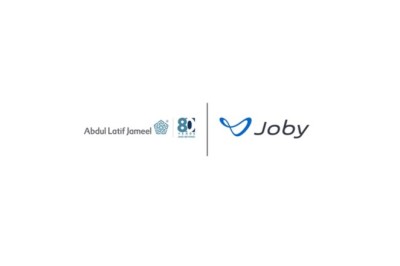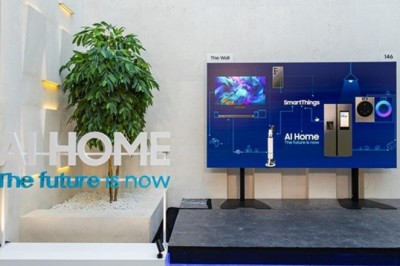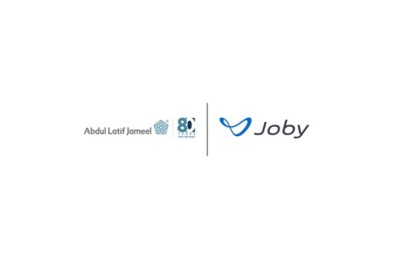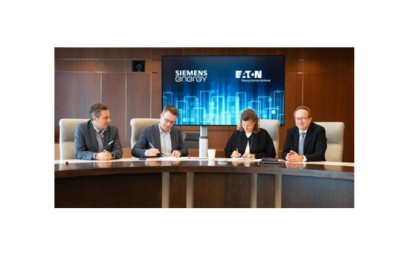
Transformation on track
FULL-YEAR 2019 HIGHLIGHTS
- Orders $28.6 billion, steady; comparable +1%
- Revenues $28.0 billion, +1%; comparable +1%
- Operational EBITA margin1 11.1%, impacted by a combined 130 basis points due to stranded costs and non-core activities
- Income from operations $1,938 million, -13%
- Net income $1,439 million, -34%
- Basic EPS $0.67, -34%2; Operational EPS1 $1.24, -7%
- Cash flow from operating activities $2,325 million, -20%, incl. cash outflows for simplification program and Power Grids carve-out
- CHF 0.80 per share dividend proposed
FOURTH QUARTER 2019 HIGHLIGHTS
- Orders $6.9 billion, -1%; comparable +1%
- Revenues $7.1 billion, -4%; comparable -2%
- Operational EBITA margin 10.1%, impacted by a combined 170 basis points due to stranded costs and non-core activities
- Income from operations $648 million, +136%
- Cash flow from operating activities $1,911 million, +2%, incl. cash outflows for simplification program and Power Grids carve-out
NEW LEADERSHIP
- Bjӧrn Rosengren appointed CEO, effective March 1, 2020
ZURICH--(BUSINESS WIRE/AETOSWire)-- “ABB gave a resilient performance in 2019 in the face of challenging market conditions and a significant transformation. Our revenues and operating margin both improved slightly. The divestment of Power Grids is on track and we are clearly starting to see the positive effects of implementing our new operating model and new culture,” said Peter Voser, Chairman and CEO of ABB. “In line with our dividend policy we are proposing a dividend of 0.80 CHF per share. We are committed to providing attractive returns to shareholders, further enhanced by the commencement of share buybacks using the net cash proceeds from the Power Grids transaction later this year.”
Short-term outlook
Macroeconomic indicators suggest weaker growth in Europe and the US, while China’s stabilizing trend might be impacted by the coronavirus outbreak. The global economy remains affected by geopolitical uncertainties, and overall is anticipated to maintain a similar growth trend when compared to 2019.
The end-markets ABB operates in are showing resilience, with headwinds in some markets, particularly the automotive, machine builders, and conventional power generation sectors. Foreign exchange translation effects are expected to continue to influence the company’s results.
Full-year 2019 Group results
“We have made good progress in 2019, gradually reducing stranded costs as part of the Power Grids carve-out process, steadily working through non-core and other legacy issues that hinder performance of the group and realizing savings through our ABB-OS simplification program,” said Timo Ihamuotila, CFO of ABB.
“Going forward we will maintain this momentum, driving profitable growth against continued headwinds in some markets, while working to improve operating margins and maintain our track record of solid cash generation.”
Full-year 2019 results summary
ABB delivered a resilient performance for the year while undertaking a very extensive transformation, slightly improving revenues and operating margins, against a back-drop of more challenging markets.
Orders were up 1 percent3 (steady in US dollars) at $28,588 million, with moderate growth of 4 percent in Motion, 4 percent in Electrification and a steady result in Industrial Automation dampened by an 11 percent order decline in Robotics & Discrete Automation. The order developments reflect softening global economic growth and substantial headwinds in discrete markets, particularly automotive and machine builders. Orders rose 2 percent in Europe, 1 percent in the Americas and declined 1 percent in AMEA. Service orders were 2 percent higher (1 percent in US dollars) and 20 percent of total orders, compared to 19 percent in 2018.
Revenues rose 1 percent (1 percent in US dollars) to $27,978 million, supported by backlog execution. Revenues grew in Motion and Electrification by 4 percent and 2 percent respectively, were flat in Industrial Automation and 4 percent lower in Robotics & Discrete Automation. On a regional basis, revenues in Europe rose 4 percent and 2 percent in the Americas, while AMEA was 3 percent lower. Service revenues were up 3 percent (2 percent in US dollars) at 19 percent of group revenues. The book-to-bill ratio stood at 1.02x1 in 2019 compared with 1.03x in the previous year.
Operational EBITA margin1 of 11.1 percent was up 20 basis points. Margins were supported by margin expansion in the Motion business, $146 million improvement in the results for non-core and divested businesses, the elimination of $72 million of cost stranded in the run-up to the sale of Power Grids and realized savings from the ABB-OS simplification program. Margins were dampened by the full-year impact of the GEIS acquisition on the Electrification business, lower margins in Industrial Automation, which was also impacted by a specific project revaluation recorded in the third quarter, and lower margins in Robotics & Discrete Automation, which was impacted by market headwinds in its end markets.
ABB’s Income from operations of $1,938 million, which was 13 percent lower year-on-year, was also impacted by restructuring, Power Grids’ related transaction and separation costs and charges, as well as charges from the planned sale of the solar inverter business. These impacts were somewhat mitigated by non-operational gains from sales of businesses and an adjustment to the GEIS purchase price.
Net income from discontinued operations was $438 million. ABB anticipates a significant improvement in the performance of its discontinued operations from the first quarter onwards.
Net income attributable to ABB of $1,439 million and basic EPS of $0.67 were both 34 percent lower compared to the prior year period. The group’s effective tax rate of 41.5 percent reflects tax effects from the planned sale of both the solar inverter business and Power Grids’ operations.
The full-year operational EPS was $1.241, 7 percent2 lower in constant currency.
Cash flow from operating activities of $2,325 million for the full-year was 20 percent lower year-on-year.
Cash flow provided by operating activities from continuing operations of $1,899 million was solid and included cash costs related to the ABB-OS simplification program as well as Power Grids related transaction and separation costs of more than $200 million6. Net working capital was 9.5 percent of revenues, compared to 9 percent at end of 2018. Favorable trade receivables, as well as lower inventories and cash tax outflows were partly offset by less cash inflow from trade payables. Capital expenditure for the group’s continuing operations was $762 million, compared to $772 million during 2018.
Cash flow from operating activities in discontinued operations was $426 million. Capital expenditure for discontinued operations amounted to $167 million versus $201 million in 2018.



















Facebook Conversations
Disqus Conversations